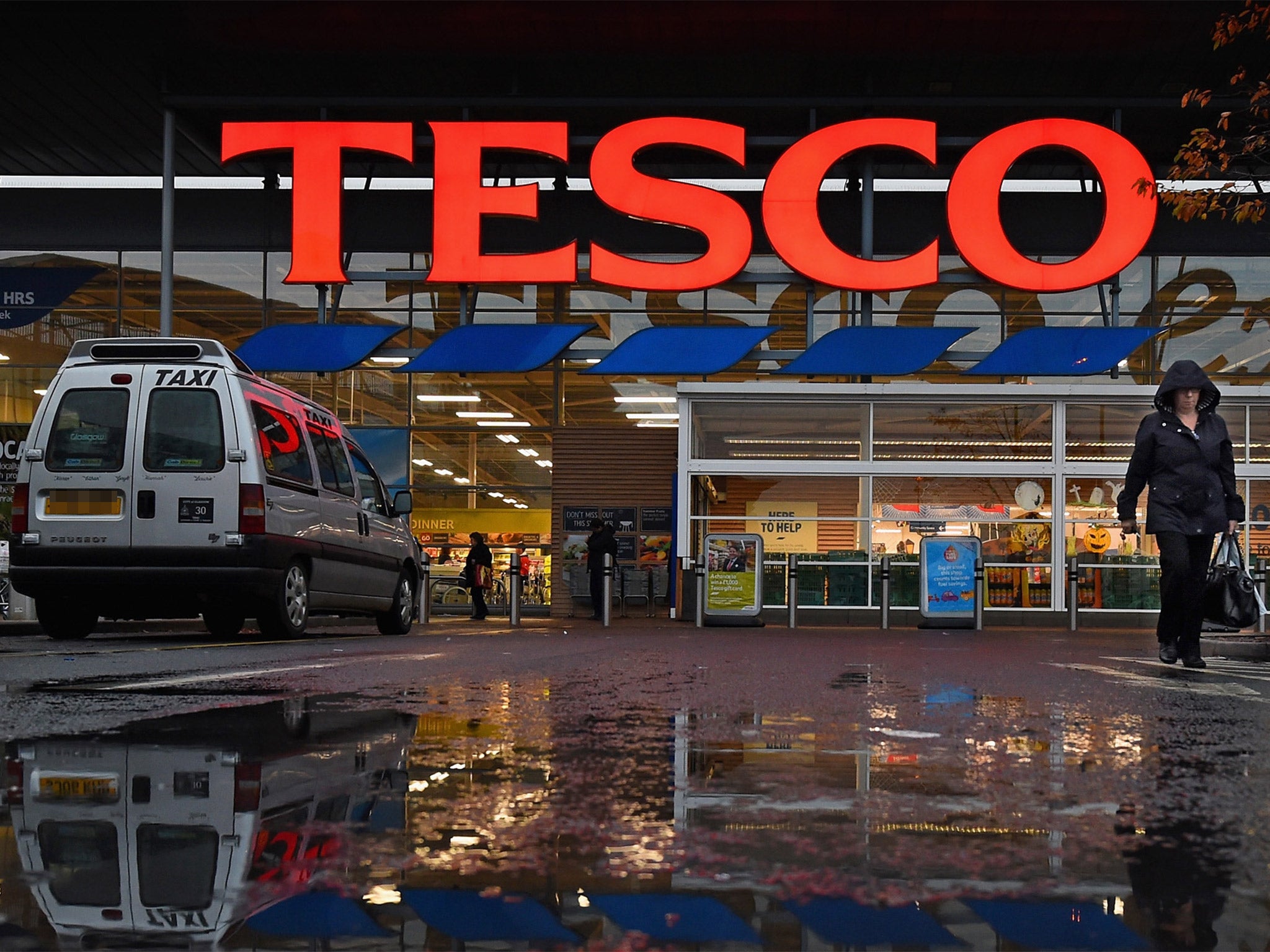Further shock profit warning sends Tesco towards junk status
Shares in the group hit lowest closing price since 2003

Tesco sailed ever closer to being reduced to junk bond status last night as its shares plunged a further 13 per cent after another profit warning.
The troubled supermarkets group reeling from the discovery of a £263m black hole admitted it would now make 57 per cent less profit in its full year than it did in 2013, with UK profits down 96 per cent. Tesco will now make no more than £1.4bn compared with analysts’ forecasts of around £1.94bn.
Shares in the group closed down 24.77p at 162.53p – its lowest closing price since 2003, after at one stage being as low as 155.4p. That took it to within a whisker of its levels in 1997 at the start of Sir Terry Leahy’s time at the reins.
“This was a further material downgrade,” declared Darren Shirley, a retail analyst at Shore Capital stockbrokers.
Rickin Thakrar, a City analyst with the brokerage Espirito Santo, said: “We think Tesco remains increasingly at imminent risk of junk status by credit agencies.”
Credit rating agency Moody’s said while it was not reducing its rating on Tesco yet, the supermarket remained very much “under review for a possible downgrade”.
As well as crushing its global reputation, a downgrade would have the knock-on effect of making its debt repayments far more expensive and would probably make some suppliers more wary of extending it credit. The profit warning by the stores giant came on the 100th day in charge of Dave Lewis.
While admitting his disappointment, the chief executive said he wanted to make a break with the past, in which Tesco had leaned too much on getting discounts and cashback from suppliers, and move to a traditional retailing business model focused on making a profit from its shops.
“The decisions we take now have a short-term effect on our shareholders, and I regret that,” he said. “But I think our proposition should be about investing in customers, which will have long-term benefits.”
“Investing in customers” is retail code for cutting prices at the expense of profit margins. Analysts said moving suppliers to more traditional contracts would cost it profits in the short term but could give it more flexibility on the prices it charges in the stores as its decisions will not be overly skewed by the desire to trigger bonus payments from suppliers.
Meanwhile, Mr Lewis said all 963 head-office staff in its commercial division, where the problems with tricksy accounting for suppliers’ discounts occurred, have now been retrained. The Serious Fraud Office is still investigating how the division inflated profit forecasts by £263m.
Other costly, but crucial, initiatives include the hiring of 6,000 new staff. Mr Lewis said: “Everybody wants me to predict a time of the turnaround… I don’t have a crystal ball.”
While much of Tesco’s crisis is borne from the way its commercial department set the terms with its suppliers, its longer-term problems are substantial and due to the complete change in people’s shopping habits away from big out-of-town stores.
This applies to a lesser extent to Sainsbury and Morrisons, whose shares fell 2 per cent and 4 per cent yesterday.
Subscribe to Independent Premium to bookmark this article
Want to bookmark your favourite articles and stories to read or reference later? Start your Independent Premium subscription today.

Join our commenting forum
Join thought-provoking conversations, follow other Independent readers and see their replies